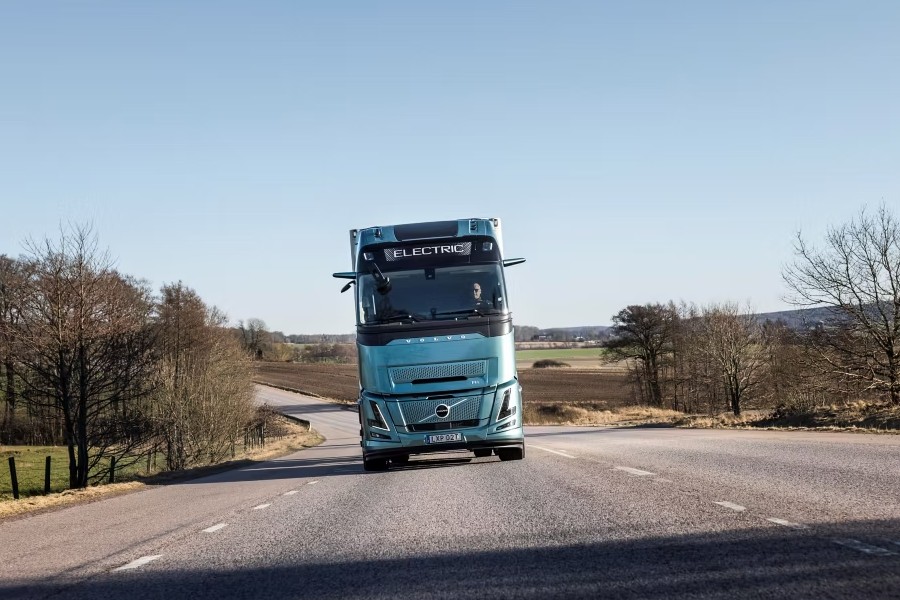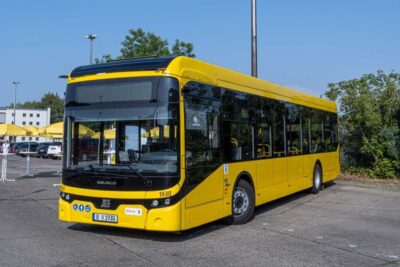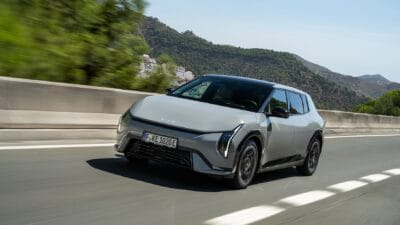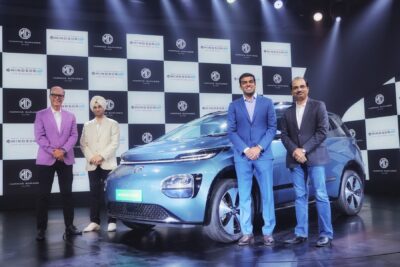Volvo Trucks launches an electric truck with 600 km range in 2025
Volvo Trucks’ impact in the long-haul segment was already expected in the industry. Truck manufacturers are not a dime a dozen. A fairly stable group of OEMs has been sharing the pie in this market for decades. In addition, electrive had already heard in July at a meeting with sister company Renault Trucks (both Volvo Trucks and Renault Trucks belong to the Volvo Group) that an XXL electric truck with a range of 600 kilometres is in the works. The long-distance truck will therefore most likely be launched in different versions, but with a similar technology package under the flags of both Group companies. Probably not until 2025 at Volvo and then 2026 at Renault Trucks.
Looking at the competition, Daimler Truck has presented the eActros 600 electric long-haul truck, which is due to go into production at the end of the year. Traton subsidiary MAN and DAF also want to fish for customers in this area in future with their eTruck and XF models. Now Volvo Trucks is coming out of the woodwork – and is clearly beating the competition in terms of its range promise: while the Mercedes-Benz eActros 600 and the DAF XF should be able to cover around 500 kilometres and the MAN eTruck around 400 kilometres at a stretch, the Swedes are promising up to 600 kilometres for their new FH-Electric version.
The company has not yet published key points from the technical data sheet. In addition to the 600-kilometre figure, which explicitly refers to one battery charge (MAN, for example, also likes to quote a “daily range” of 800 kilometres for the eTruck, but this includes a charging break), the Volvo announcement only mentions the second half of 2025 as the launch period. The Swedish company remains very general about the rest: the new generation of the FH Electric will have “the so-called e-axle, which creates space for significantly more battery capacity onboard,” as well as “more efficient batteries, a further improved battery management system and overall efficiency of the powertrain.” Even during a visit to sister company Renault Trucks in Lyon in July, only a few details were given. However, they did mention that the new long-haul truck will probably be equipped with eight battery packs (instead of the current maximum of six) and should therefore have an energy content of around 800 kWh.
In its press release, Volvo Trucks states more generally that the electrification of heavy trucks is progressing worldwide. ‘Technological advances are making it possible to cover ever longer distances electrically. The greater range is a breakthrough for long-distance transport without tailpipe emissions.’ With the new FH Electric, transport companies can ‘drive for an entire working day without having to recharge.’
The current FH Electric is one of three heavy-duty electric truck models that Volvo has been selling and building in series since 2022. The company is currently positioning the model in the regional and inter-regional transport sector; there is also the FM Electric (for regional, heavy-duty transport) and the FMX Electric for construction transport. All three series have a drive system that combines three electric motors with Volvo Trucks’ I-Shift transmission. The peak output is 490 kW, and the continuous output is 315 kW. The six batteries have a combined energy content of 540 kWh, which currently enables a range of around 300 kilometres.
In addition to the heavy-duty trio, Volvo Trucks currently has the three medium-duty electric truck models Volvo FE, Volvo FL and VNR (for North America) in its portfolio. There is also an aero version of the FH Electric and a low-entry version of the FM Electric. Volvo’s electrically powered trucks are produced in four plants. The fourth and larger production facility, in Ghent, Belgium, was only added in September 2023. According to Volvo, it has delivered more than 3,800 electric trucks to customers in 46 countries around the world.
Roger Alm, President of Volvo Trucks, refers to the upcoming electric long-haul truck as the company’s “new electric flagship.” This is a great addition to the existing wide range of electric trucks and enables emission-free transport even over longer distances. “Our new electric flagship will be a great complement to our wide range of electric trucks and enable zero-exhaust emission transport also for the longer distances. It will be a great solution for transport companies with a high annual mileage on their trucks and with a strong commitment to reduce CO2,” says Alm, who describes battery electric trucks as an important tool for improving the carbon footprint.





0 Comments